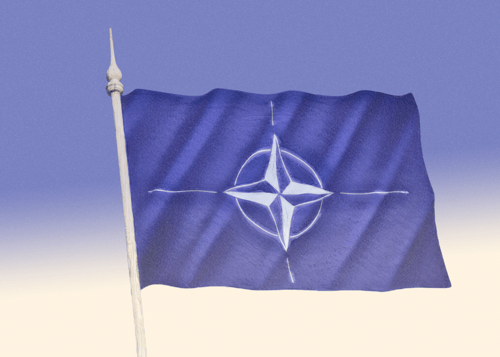
NATO's South Caucasus welcome
The North Atlantic Treaty Organization (NATO) has recently reaffirmed its commitment to fostering closer ties with the nations of the South Caucasus. While the specific focus of the alliance's engagement varies across each country from political to economic and military domains, there is a unified message resonating throughout: NATO shows commitment to the territorial integrity, political independence, and sovereignty of each nation. This commitment was underscored during Secretary General Jens Stoltenberg's recent three-day tour of Baku, Tbilisi, and Yerevan, highlighting the strategic significance of the South Caucasus region within NATO's agenda.
To no one’s surprise, the Kremlin gets a bit jealous and protective when the transatlantic security alliance mingles with the region. Russia didn’t hesitate to condemn Stoltenberg’s tour in the South Caucasus, with Kremlin spokesperson Dmitry Peskov expressing scepticism about its contribution to regional stability.
Azerbaijan
NATO Secretary General Jens Stoltenberg praised Azerbaijan’s cooperation with NATO. He highlighted Azerbaijan’s efforts in energy security and contributions to NATO operations since the country joined the Partnership for Peace in 1994. During the meeting with Azerbaijani President Ilham Aliyev, Stoltenberg emphasised the importance of regional stability, urging Armenia and Azerbaijan to pursue lasting peace and praised Azerbaijan's support for Kyiv during Russia's war against Ukraine.
Georgia
During his visit to Georgia, Stoltenberg held meetings with the country's president and prime minister. The discussions centred on Russia's imperialistic ambitions, Russia’s war against Ukraine, and escalating security challenges in the Black Sea region, with attention also on Russian dominance in Georgia’s breakaway regions.
Stoltenberg also alleviated concerns among Georgian citizens regarding the potential loss of NATO support. However, he stressed that following EU recommendations for becoming a member state would also pave the way for NATO membership. This brought some satisfaction to the Georgian population, the vast majority of which is in favour of and has been actively fighting for EU and NATO membership.
Armenia
During his visit to Armenia, Stoltenberg reiterated NATO's commitment to Armenia's sovereignty and territorial integrity while commending Armenia's increasingly pro-Ukraine stance. Despite Armenia's nominal alignment with Russia and its membership in the Russian-led Collective Security Treaty Organization (CSTO), Stoltenberg's visit reaffirmed Armenia's growing alignment with the West. In an interview with Armenia's Public TV, Stoltenberg emphasised the considerable potential for increased collaboration between Armenia and NATO. Furthermore, NATO and Yerevan are set to launch the Individually Tailored Partnership Programme (ITPP), aimed at enhancing cooperation between Armenia and the alliance, replacing the existing partnership plan signed in 2006. The ITPP, according to Stoltenberg, will allow it to support Armenia’s development of security and defence policies, as well as institutional reforms. In brief, NATO “will only do as much as Armenia is ready to do together”.
Amid the growing cooperation between Armenia and its Western partners, Stoltenberg’s visit was welcomed by the Armenian public, which hopes for more substantial military support from the West. The last time Yerevan welcomed the secretary general of NATO was in 2012.